| Subject | Value Added Course |
| Session | 2023-24 |
| Year | T.Y. B.Arch. |
| Date | January to March, 2024 |
| Time | 8:30 a.m. to 3:00 p.m. |
| Venue | Third Floor Studio |
| Faculty Co-Ordinator | Prof. Prakash Shringarpure, Prof. Neha Deshpande |
Workshop Details Day wise with Geotagged photographs:
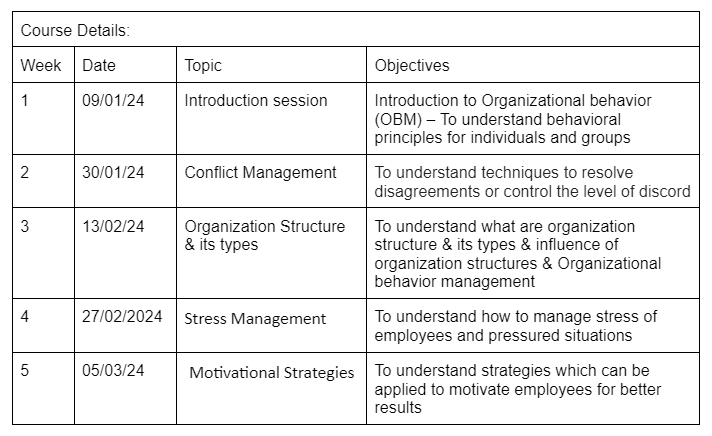
Day 1
Prof. Prakash Shringarpure introduced Organizational psychology as a concept to students. He explained its importance in the field, the scenario of office & project lifecycle. He also explained the relevance of project management in the architecture field & how it is beneficial for the team as a whole. He introduced behavioral principles for individuals and discussed them in details.


Day 2
Prof. Prakash Shringarpure introduced a new topic Conflict management to the class. He explained the techniques to resolve disagreements or control the level of discord. With different role play and team building exercises sir explained how conflicts can be resolved without disputes He explained the role of Project manager in a project & his competency.
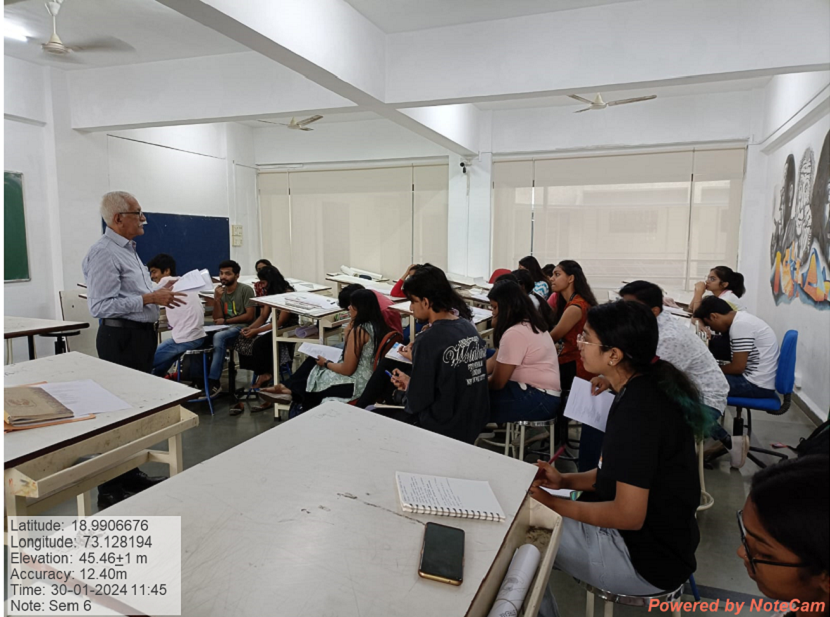
Day 3
On the 3rd day, Prof. Prakash Shringarpure introduced the topic Organization structure and its types. He explained the hierarchy in the organization and its importance. Students were made to understand about organization structure & its types & influence of organization structures & Organizational behavior management.
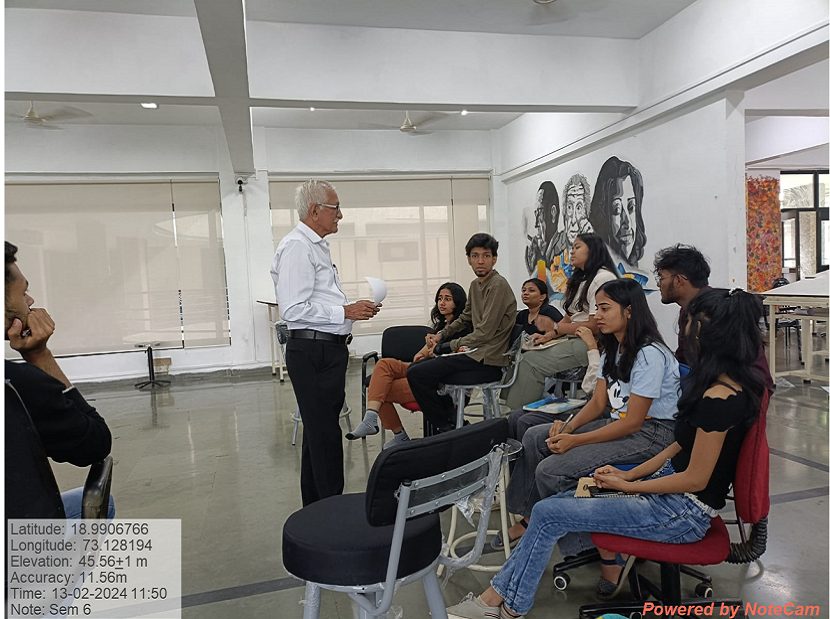
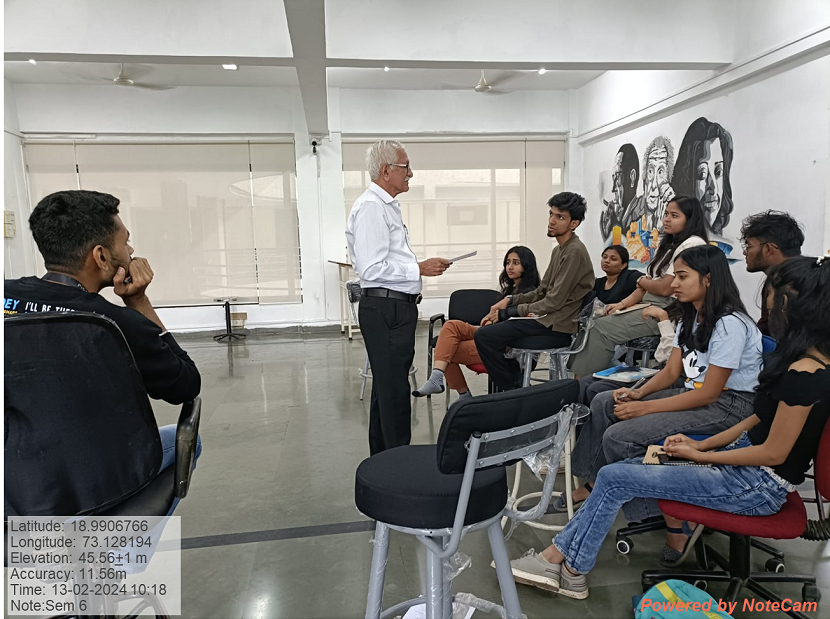
Day 4
Stress management was the topic of discussion on the day 4 of the workshop. Prof. Prakash Shringarpure explained how to manage stress of
employees and pressured situations. He discussed various case studies on stress management.
He also gave examples of various situations and opened discussion about how it could be tackled or handled without being in stress. He also discussed day to day examples on how students would react in those situations.
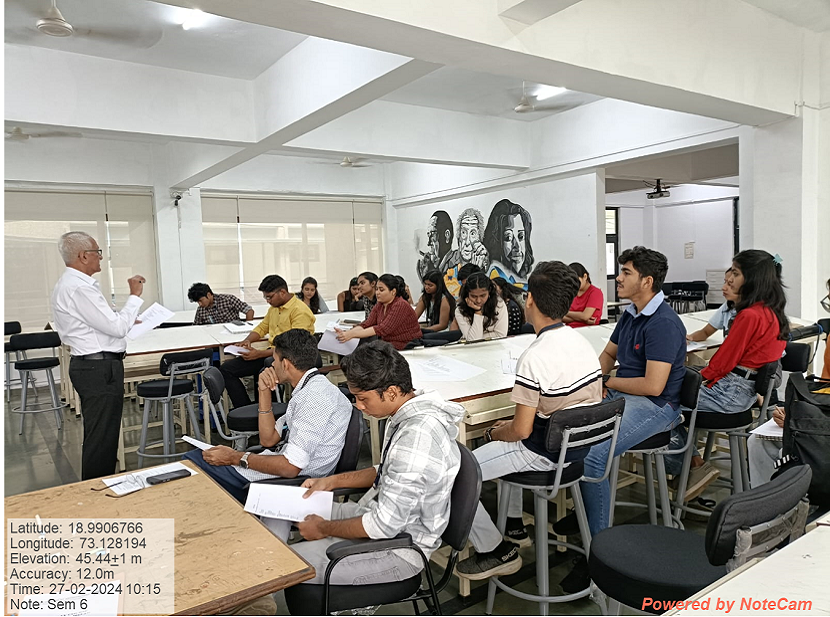
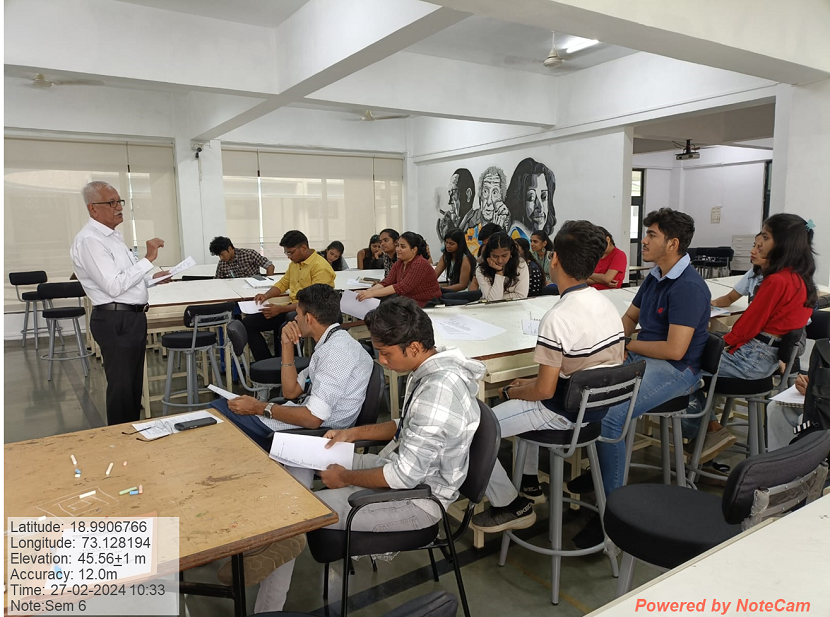
Day 5
Motivation in the organization was discussed on the day 5 of the workshop. Prof. Prakash Shringarpure explained different types of motivation, objectives and effect of the motivation.
Sir also explained about the factors affecting motivation and described case studies with behavior in the organization.

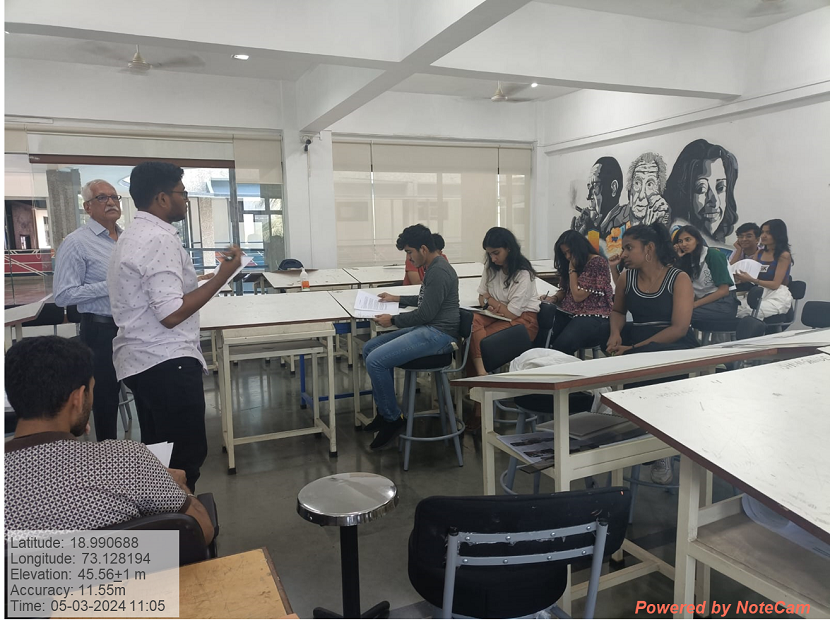
Details of the event:
- When and How the event was conducted?
The workshop was conducted during 2nd January to 5th March, 2024 on the third floor studio with approximately 40 students of TY B Arch as attendees. - Significance of the event/topic
Organizational Behavior Management (OBM) focuses on assessing and changing the work environment to improve employee performance and workplace culture.
OBM consultants and managers work in a variety of industries (e.g., health care, human services, education, government, nonprofits, manufacturing, financial services, retail) to achieve meaningful and sustainable behavior change and improved business outcomes. OBM practitioners typically facilitate change initiatives, improve and develop processes and systems, close gaps in employee performance, retain and develop staff, and support business growth.
Organizational behavior is the academic study of how people interact within groups. The principles of the study of organizational behavior are applied primarily in attempts to make businesses operate more effectively.
Organizational results often include reduced accidents and injuries, improved employee retention, improved customer satisfaction and retention, cultural integration after mergers and acquisitions, improved quality standards, and increased revenue and profits.
Aim:
To understand & explore concepts & different aspects of Organization behavior management in depth. The course aimed to help students develop a deeper understanding of the complex issues surrounding OBM and its impact on workplace culture and employee performance.
Objectives:
- To introduce the concept of Organization Behavioral Management (OBM).
- To introduce the working and the structure of an organization.
- To explore different aspects of OBM such as Conflict management, Stress management, Leadership Qualities required & motivational strategies.
Gist / points covered in lecture / event:
The course help students develop practical skills related to OBM, such as conflict management, stress management, leadership qualities, and motivational strategies. Practical exercises, case studies, and role-playing scenarios were included in the course to help students put their knowledge into practice.
The course provided students with a broad understanding of the concept of OBM and its practical applications in the workplace. Lectures, readings, and discussions were used to provide students with a comprehensive overview of the subject, including various models and theories of OBM, as well as best practices and strategies for implementing OBM initiatives.
The course aimed to help students develop a deeper understanding of the complex issues surrounding OBM and its impact on workplace culture and employee performance. In-depth case studies and discussions were used to explore the psychological and behavioral factors that influence employee behavior and performance, as well as the social and cultural factors that can impact workplace dynamics.
Brief take away of the event/lecture:
In-depth case studies and discussions were used to explore the psychological and behavioral factors that influence employee behavior and performance, as well as the social and cultural factors that can impact workplace dynamics.
In our competitive, complex, and constantly changing world, organizations must be both efficient and effective in what they do. To do this, organizations must have competent employees that know how to work together to reach organizational goals. As a result, it is important to understand how to build and maintain a competent and cooperative workforce.
By studying organizational behavior, both employees and managers come to understand what makes people behave the way they do. Employees can use this knowledge to increase their own job satisfaction and improve their work performance. Managers can use organizational behavior to accomplish goals and help employees achieve optimal performance. More importantly, learning about organizational behavior will help you to understand your own behaviors, attitudes, ethical views, and performance, as well as those of the people with whom you’ll be working. This type of knowledge will assist you in working effectively with managers, colleagues, and subordinates.




